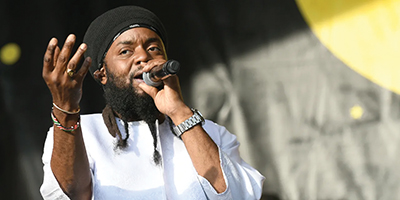By Jazz Monroe
(Source Pitchfork):
A son of the reggae singer Denroy Morgan, he started Morgan Heritage with seven of his siblings in the mid-1990s
Peter “Peetah” Morgan, the lead singer in the contemporary reggae outfit Morgan Heritage, died yesterday (February 25), The Associated Press reports, confirming a statement on the band’s social media. No cause of death was given. Morgan was 46-years-old.
Peter Anthony Morgan was born in Brooklyn and grew up in Massachusetts with several other children of the Jamaican singer Denroy Morgan, whom they would visit in Brooklyn to play music on weekends. Known as Peetah, the singer formed the group with seven of those siblings in 1994, eventually winnowing down to a five-piece. Their fusion of roots reggae with an increasingly pop-leaning blend of soul, R&B, dub, calypso, and other dance styles proved a hit both on U.S. radio and in their Jamaican homeland, where the band moved after releasing debut LP Miracles.
A series of hits on the Billboard reggae chart followed, including the title track of 1999 album Don’t Haffi Dread and “Down by the River” from 2001’s More Teachings. Upon releasing the latter album, Morgan elaborated to Billboard on their lyrical focus on Rastifarian praise and unity: “We put stereotypes to the back and character to the front. It’s about who you are, [and it’s] not what you look like. Mankind on a whole has to hear the same thing over and over again.” In 2016, the group won a Grammy Award for Strictly Roots; its next album, Avrakedabra, was nominated two years later.
Morgan’s family asked in its statement for privacy in the wake of the news, adding, “Jah come and save us from ourselves because love is the only way.”

